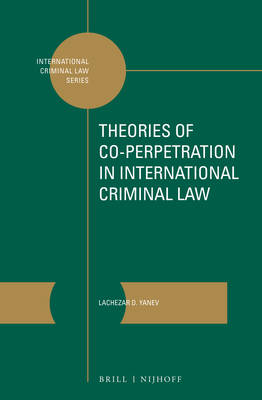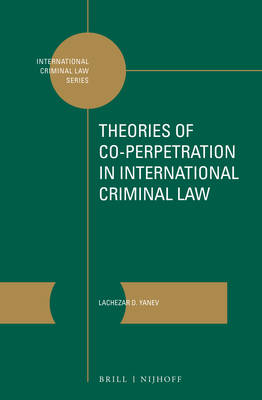
- Afhalen na 1 uur in een winkel met voorraad
- Gratis thuislevering in België vanaf € 30
- Ruim aanbod met 7 miljoen producten
- Afhalen na 1 uur in een winkel met voorraad
- Gratis thuislevering in België vanaf € 30
- Ruim aanbod met 7 miljoen producten
Zoeken
Omschrijving
The proper construction of co-perpetration responsibility in international criminal law has become one of the most enduring controversies in this field, with the UN Tribunals endorsing the theory of joint criminal enterprise, and the International Criminal Court adopting the alternative joint control over the crime theory to define this mode of liability. This book seeks to reconcile the ICTY/R's and ICC's jurisprudence by providing a definition of co-perpetration that could be uniformly applied in the two justice models that these institutions represent: the ad hoc- and the treaty-based model. An evaluation framework is adopted, pursuant to which the origins, merits and deficiencies of the said competing theories are critically assessed, and a refined legal framework of co-perpetration responsibility is proposed.
Specificaties
Betrokkenen
- Auteur(s):
- Uitgeverij:
Inhoud
- Aantal bladzijden:
- 654
- Taal:
- Engels
- Reeks:
- Reeksnummer:
- nr. 12
Eigenschappen
- Productcode (EAN):
- 9789004357495
- Verschijningsdatum:
- 24/05/2018
- Uitvoering:
- Hardcover
- Formaat:
- Genaaid
- Afmetingen:
- 160 mm x 239 mm
- Gewicht:
- 1043 g

Alleen bij Standaard Boekhandel
+ 934 punten op je klantenkaart van Standaard Boekhandel
Beoordelingen
We publiceren alleen reviews die voldoen aan de voorwaarden voor reviews. Bekijk onze voorwaarden voor reviews.








